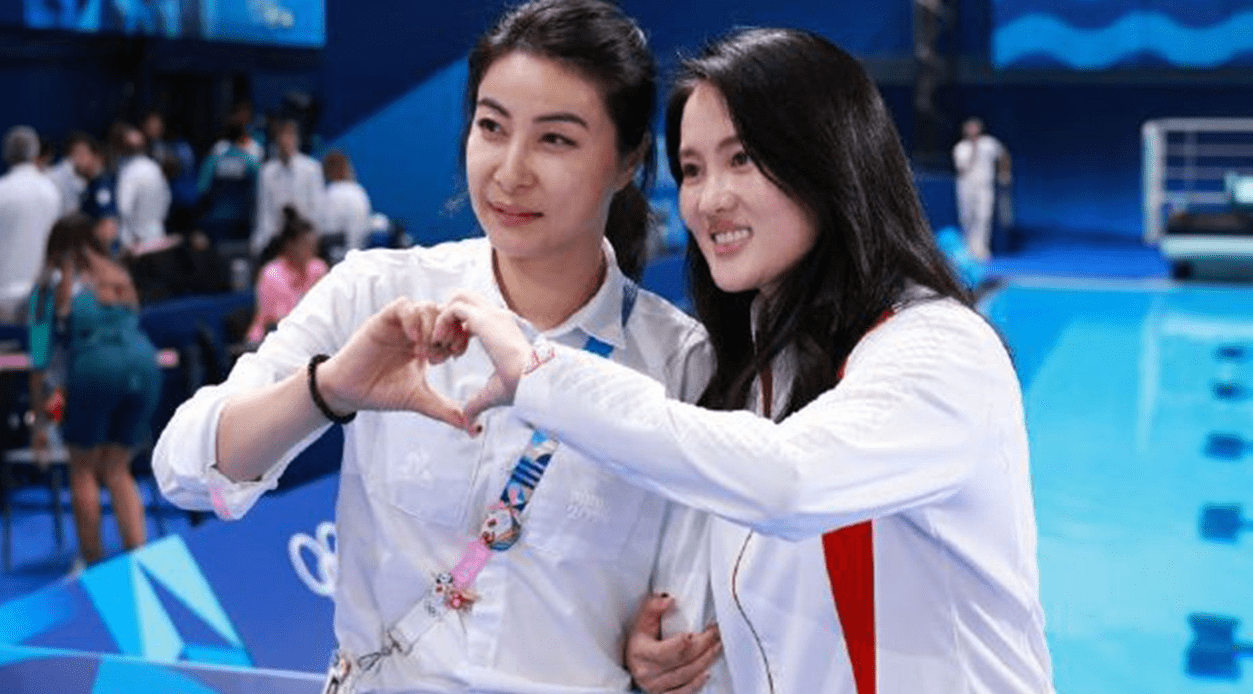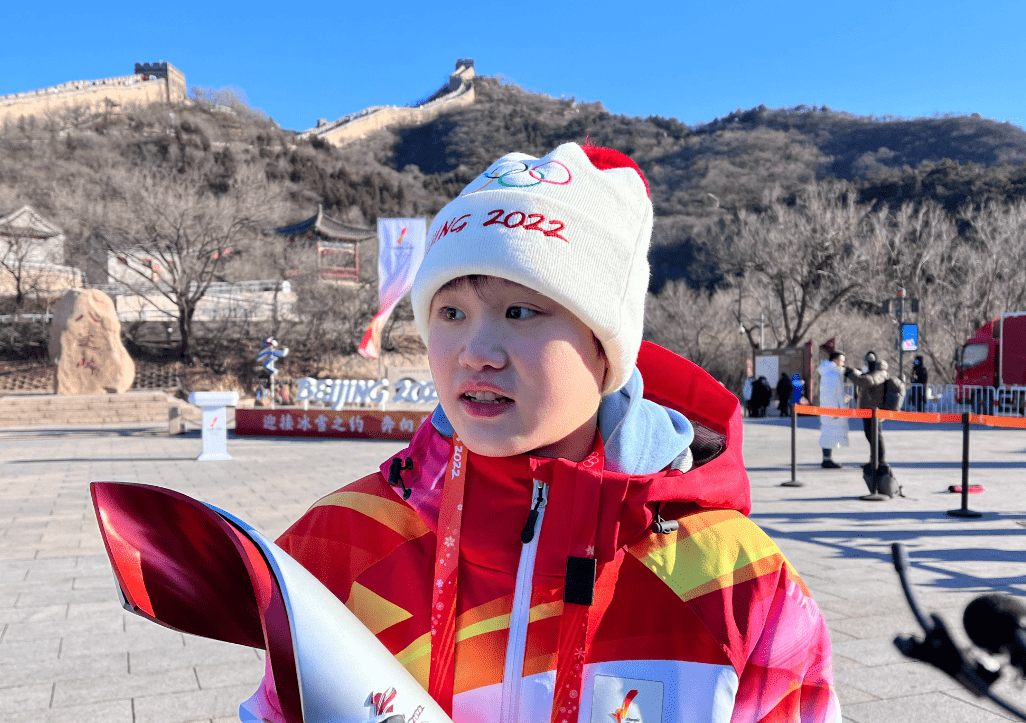How to sustain life's peak moments? After reaching the summit early in life, what path should one take next? This is the "compulsory question" faced by every athlete. 20-year-old Zhang Jiaqi tells us with her "milk-cute voice" navigation that while the diving platform is spectacular, life's stage extends far beyond it.

Zhang Jiaqi's rise to fame carries a strong aura of being "chosen by destiny." Born into a "diving family," she seems destined for the 10-meter high diving board. From childhood, her talent was frequently praised by coaches. At just 12 years old, she stood out in competitions with a clean and almost perfect dive, making everyone remember this slender young girl. From then on, the title of "Guo Jingjing's successor" hung before her name.

During her training career with the national team, Olympic champions Guo Jingjing and Chen Ruolin were not only role models but also became her mentors at times. Her idol would even jokingly praise her with "a promising future" during private photo sessions, instilling her with confidence to strive forward.

Intense training did not crush her; instead, it honed her competitive state. At the Tokyo Olympics, Zhang Jiaqi partnered with Chen Yuxi to win the gold medal in women's synchronized 10-meter platform, reaffirming the reputation of China's diving team as the "Dream Team." That year, she stood under the spotlight, exuding confidence, with a smile that seemed to say, "All efforts are worth it."

However, competitive sports are never a fairy tale world; behind the gold medals lies pressure and even a kind of "invisible competition." After the Tokyo Olympics, Quan Hongchan emerged with an even more astonishing performance, becoming an indispensable name in the domestic diving scene. This little girl, known as a "prodigy" since childhood, declared the arrival of her era by breaking records.

For Zhang Jiaqi, Quan Hongchan's emergence undoubtedly brought pressure. On one hand, Quan Hongchan's prominence threatened her position within the team; on the other, external comparisons and public opinion made each step of her development particularly sensitive. Many athletes might become lost in such circumstances, but Zhang Jiaqi unexpectedly chose to "step back temporarily." She did not choose to be entangled or anxious but instead thought more logically: can the diving platform and the grand stage of life really be approached in a different way?

In 2022, Zhang Jiaqi made a significant decision: to return to the classroom from the training ground. After retiring, she chose Beijing Sport University to focus on her studies. This decision was both brave and realistic for a 20-year-old. An athlete's career is limited, especially for divers whose prime typically falls during adolescence. After transitioning from competition, many may temporarily lose direction, yet Zhang Jiaqi had already built a "second runway after retirement": using knowledge and accumulation to seek more possibilities.

Moreover, she is clearly not someone willing to completely "retire." Zhang Jiaqi's retirement is more like a "strategic adjustment"; she does not give up public attention nor completely sever ties with the diving world. This adjustment is akin to building momentum for a "protracted battle," knowing that in the long-term event of life, winning applause is not the sole goal; exploring more space is the enduring core.

Even after stepping away from the diving platform, Zhang Jiaqi did not choose to remain unknown. This year, she released a surprising and curious work—recording a voice package for a navigation company. Indeed, among hundreds of route instructions, that energetic "milk-cute voice" comes from this diving champion who once won gold for China.
Speaking of "milk-cute voice" recordings, many might find it interesting: Zhang Jiaqi's voice, through wave after wave of voice operations, has become a daily companion to the public. In the past, she impressed people with diving; now, she wins fans again with an interesting navigation voice. This job brought her a substantial six-figure income, but more importantly, it shattered the fixed perceptions of retired athletes. She demonstrated with action: after leaving the field, athletes do not have to become coaches or join institutional units; they can also find new highlights through diverse attempts.
In fact, such cross-border choices are not limited to her alone. Looking back at successful retired athletes, such as Guo Jingjing, who chose to engage in public welfare while actively developing in the business world, becoming a representative of "multiple roles in life." Zhang Jiaqi's attempt is undoubtedly proof of the young generation of athletes opening up new possibilities in life.
Zhang Jiaqi's change indicates that no matter the height of the stage, life's challenges always persist. For athletes like her who achieved fame early, the blank period after retirement is not scary; what truly deserves deep thought is how to fill this transition period with courage. Young people's lives are like a five-flavor palette; one must splash more colors in the unknown to ultimately discover their own path.
Her experience also provides ordinary people with a perspective: there will always be a day when our "diving platforms" end, and whether we can find new goals to climb beneath the high platform depends on whether we are willing to take the first step of exploration.
Zhang Jiaqi wove the initial chapter of her life with diving, and now, she uses her navigation voice to chart her future path, whispering in our ears, "Life is full of highlights everywhere; why cling to just one way?"